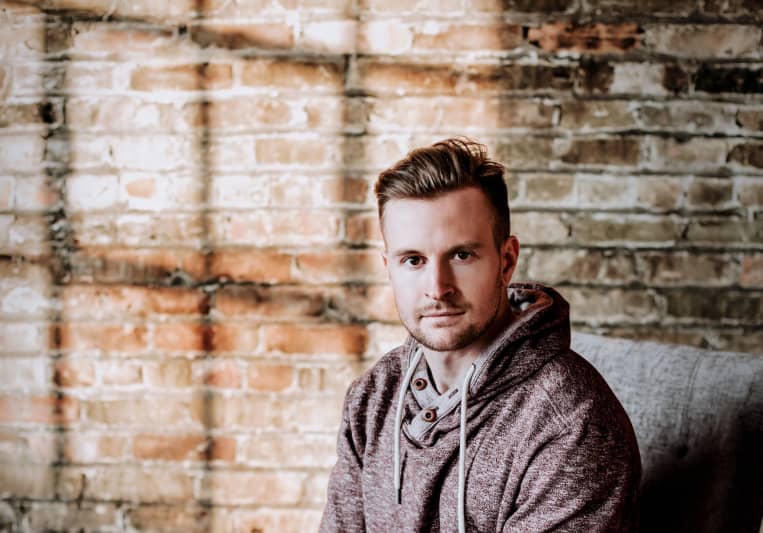
You've spent ages crafting and writing your songs. Let's work together to capture them and release them to the world in the way they were meant to be: clear, punchy, unique, and special.
I run a small home recording studio in Bay City, MI. For years I have specialized in metal and rock, but also have a lot of experience in indie, hip-hop, country, and acoustic music to name a few genres. I offer a large amount of options such as live drums and guitars as well as programmed drums and amp simulators.
I don't like the idea of using templates and presets. Sure, there is a place for them, but I believe that each project is unique and special and deserves its own unique sound. With me, no two projects sound exactly the same.
I'd love to hear about your project. Click the 'Contact' button above to get in touch.
Interview with Wesley Waibel - Audio Engineer
Q: Analog or digital and why?
A: I like both, but I typically use digital for sake of versatility and options. Over the years the digital world has improved so much that it's sometimes difficult to tell the difference between analog and digital.
Q: What's your 'promise' to your clients?
A: I won't stop until you are 100% happy. If you aren't happy then I am not happy. It sounds cliche, but it's true.
Q: What's the biggest misconception about what you do?
A: "My friend has a 'studio' in his bedroom and will record us for free." Sure, anyone with a laptop and an interface can pirate the latest plugins and software and can "produce", but it takes more than that. You can go record with your friend and come out with a mess of a product that most listeners won't give the time of day, or you can go to someone who has trained their ears for years and knows how to deliver you the best possible product that you can get.
Q: What questions do you ask prospective clients?
A: What are your expectations of me? Is there a certain sound that you are looking to achieve? What are you willing to do to achieve that sound?
Q: What advice do you have for a customer looking to hire a provider like you?
A: KNOW YOUR MATERIAL! Too often bands and artists will come into a studio barely knowing their music. They'll finish the writing and think that they're ready to come in and record. You need to have mastered and perfected your music before coming in. In doing so we will not only save time, which allows us to spend time on adding extra flare to your songs to help them stand out, but it simply creates a better sounding song that it tight and clear.
Q: If you were on a desert island and could take just 5 pieces of gear, what would they be?
A: 1. A top quality audio interface from Universal Audio. 2. A guitar amp modeler such as the Fractal Axe FX or Line 6 Helix for as many options for guitar tones that I could ever need. 3. Slate Virtual Microphone System for many different high quality microphone emulations in one little package. 4. Computer (obviously) 5. MIDI Controller
Q: How would you describe your style?
A: I like to think of my style as modern, lively yet clear, punchy and direct.
Q: Which artist would you like to work with and why?
A: My dream is to work with my favorite group August Burns Red, but I really want to work with smaller bands in my local scene. I believe that there is so much potential for us to grow together and bands and producer.
Q: What type of music do you usually work on?
A: I typically have worked with metal, rock, and the many sub-genre's of aggressive music. However, over the years I have been given the opportunities to work on several other styles of music such as hip-hop, country, indie, gospel, and jazz. I may have more experience working with certain styles of music, but I am not afraid to take on any style of music.
Q: What's your typical work process?
A: After pre-production I like to start with the guitars and bass and then move onto vocals. Typically the drums are recorded first, but I find that the overall process is much smoother when they are recorded last. When starting with guitars it's easier to make changes to the songs if it is needed. If the drums are recorded first and a change is needed during the guitar recording, the drums and microphones would have to be re-setup and recorded again. It may seem backwards, but it is starting to become a fairly common practice by many well known producers.
Q: Tell us about your studio setup.
A: My studio set up is small and efficient. I don't have a huge live room or mixing board, but what I do have is perfectly capable of creating and capturing professional sounding songs. I personally feel that the small and cozy home studio allows for a more comfortable environment and therefore allows for better performances from the artists.
Q: What other musicians or music production professionals inspire you?
A: My biggest inspirations for producers have been Josh Schroeder, Adam "Nolly" Getgood, and Brian Hood. All are amazing producers that always put out amazing productions.
- ProducerAverage price - $250 per song
- Recording StudioAverage price - $100 per day
- Mixing EngineerAverage price - $150 per song
- Mastering EngineerAverage price - $30 per song
- EditingAverage price - $30 per track
- Live SoundAverage price - $250 per concert
- Presonus Studiolive 24
- Line 6 Helix
- Pro Tools 12




